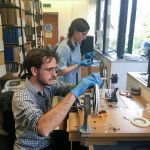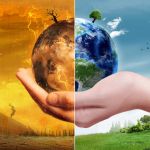Stanford faculty across disciplines are investigating the causes and effects of a warming planet and seeking new ways to reduce carbon dioxide emissions through green energy technologies. These faculty members and other campus scholars have also participated in efforts to guide climate policy at the state, federal and international level. And the work is not just of academic interest. The campus has earned national recognition for its clean energy efforts, with more than 65 percent of all campus electricity coming from renewable sources.
























































